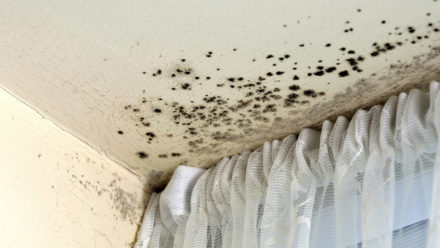Accessing the Learning Hub
On this page
About the Learning Hub
The Learning Hub is the Centre for Learning’s training platform. It is exclusively available for those working in organisations listed on our membership directory.
This platform features a range of tools to enhance landlord's learning experience and knowledge on the key themes we see in our casework.
By creating an account in the Learning Hub, you can access:
- training – book onto a range of long and short courses
- flexible learning – learn at your own pace
- event access – attend a range of webinars hosted by experts from across the Housing Ombudsman
- accreditation – choose from a range of CPD accredited courses
How to access the Learning Hub
All landlords are required to create a new account in the Hub to access the range of learning material.
How to create an account
- Simply use the link below and you will be directed to the login page of the Learning Hub.
- Scroll down and select the 'create a new account' button.
- Fill in the online form with your details.
- Select 'create my new account' to finish.
Create your new account in the Learning Hub
If you require assistance with accessing or using the new system, please contact hossectordevelopment@housing-ombudsman.org.uk.
Changes to access
The access requirements for the Learning Hub have changed. From May 2025, only those working in organisations listed on our membership directory can access the Hub.
If you can no longer access the Hub, there is a wide range of free learning resources available on the Housing Ombudsman website.
Contact information
We would love to hear your feedback about the learning system.
If you have any questions about the Learning Hub or would like to get in touch, please contact: hossectordevelopment@housing-ombudsman.org.uk.
Training available

Complaint Handling Code
New e-Learning
The Complaint Handling Code eLearning provides an overview of the statutory Complaint Handling Code which came into effect on 1 April 2024.
The eLearning is made up of 6 modules:
- Introduction
- Key points of the Code
- Complaint handling
- Self-assessment, reporting and compliance
- Scrutiny and oversight: continuous learning and improvement
- Quiz

Dispute Resolution
The Dispute Resolution module is aimed at developing knowledge and understanding to help resolve issues at an early stage and at a local level, based on our dispute resolution principles:
- be fair
- put things right
- learn from outcomes
It demonstrates the principles using case studies and examples of best practice. Suitable for landlord employees of all levels with a role in dispute resolution, the course will enable participants to:
- apply the dispute resolution principles to help resolve complaints effectively
- identify cultural changes that will lead to better outcomes for residents and landlords

Applying Dispute Resolution
The Applying Dispute Resolution module sets out how to use the dispute resolution principles to manage three types of complaint:
- repairs
- antisocial behaviour
- managing unacceptable behaviours
Participants work through scenarios in these three areas and can stop and start at any time.
There is a short knowledge test at the end.

Knowledge and Information Management
This module shares the results and recommendations of the Spotlight on Knowledge and Information Management Report, which was published in May 2023.
The course will enable participants to:
- identify what knowledge and information management encompasses
- specify the four data topics our finding in this report covers
- identify good practice in knowledge and information from a case study example
Once participants have completed this module, they can sign up for the virtual classroom which gives landlords and other housing professionals the opportunity further embed the key learning objectives and to discuss the recommendations from KIM report published in May 2023.

Spotlight report on damp and mould eLearning
This module shares the results and recommendations of the Spotlight on Damp and Mould report published in October 2021 and the one year on follow up report Spotlight on Damp and Mould published in February 2023.
The course will enable participants to:
- list the reasons why we focused on damp and mould for these Spotlight Reports
- select the reasons why complaints are a valuable learning opportunity
- identify the 10 key factors which impact how successful damp and mould plans are in practice
Once participants have completed this module, they can sign up for the virtual classroom which gives landlords and other housing professionals the opportunity further embed the key learning objectives and to discuss the recommendations from the damp and mould reports.

What is damp and mould? Why does it happen?
Microlearning
This short microlearning looks at what damp and mould is, and the reasons why it happens.
It is based on Department for Levelling Up, Housing and Communities, the Department of Health and Social Care and the UK Health Security Agency guidance on damp and mould produced in 2023.

Social landlords' damp and mould responsibilities
Microlearning
This microlearning looks at social landlords’ damp and mould responsibilities, the common reasons why landlords fail when dealing with damp and mould and how landlords move from being reactive to proactive.
It also shares some examples of what is working for some landlords when it comes to engaging residents on damp and mould.

A brief overview of the evolution and perception of social housing
Microlearning
This microlearning looks at housing as a human right and a public health mission.
It gives an overview of the evolution of social housing and perception of social housing residents.

Social housing: the operational landscape in 2023
Microlearning
Landlords and residents alike face a challenging shift in the need, availability and use of social housing. The landscape of social housing has changed and with it the financial, legal and regulatory pressure affecting all aspects.
This microlearning explores these changing landscapes to understand the obstacles that have prevented a modern country from fulfilling the original purpose of our social housing; to safeguard public health and enshrine housing as a human right.

What does it mean to be vulnerable in social housing?
Microlearning
This microlearning looks at what it means to be vulnerable in social housing, who determines whether someone is defined as being vulnerable and the statutory framework.

Apologies guidance
Microlearning
A well-made apology is an important and powerful tool in resolving a complaint early.
This microlearning provides a guide on how to make an effective apology. It looks at what to include in your apology, whether it should be written or in person, and who should give it.

Our jurisdiction
Short video
This short video looks at the types of complaints the Housing Ombudsman Service can consider and who can bring a complaint to us.

Insight from our casework - processes
NEW microlearning
In this microlearning, the Centre for Learning look at our 'process findings' as part of the research for the Spotlight report on attitudes, respect and rights.
Insight from our casework – people
NEW microlearning
In this microlearning, the Centre for Learning look at our 'people findings' as part of the research for the Spotlight report on attitudes, respect and rights.
